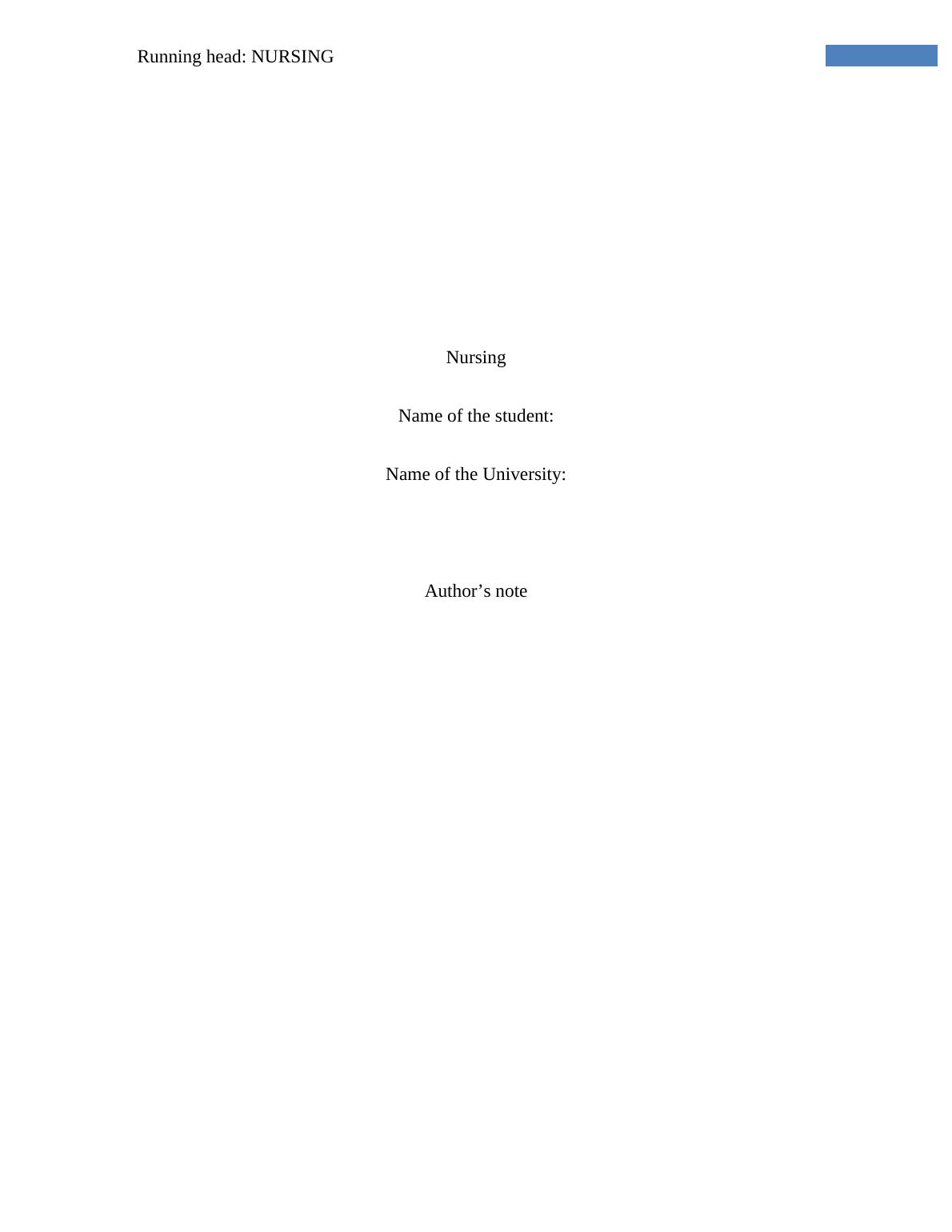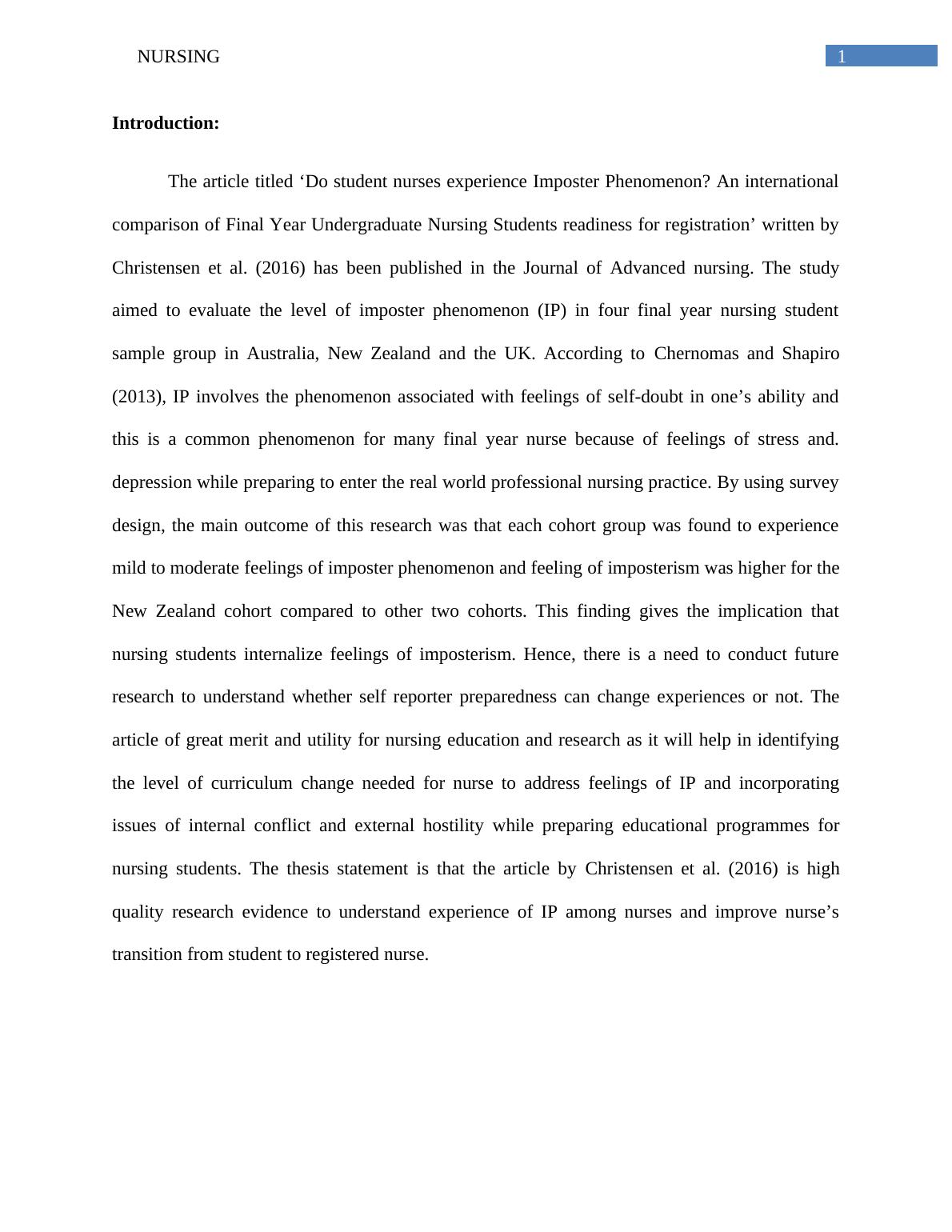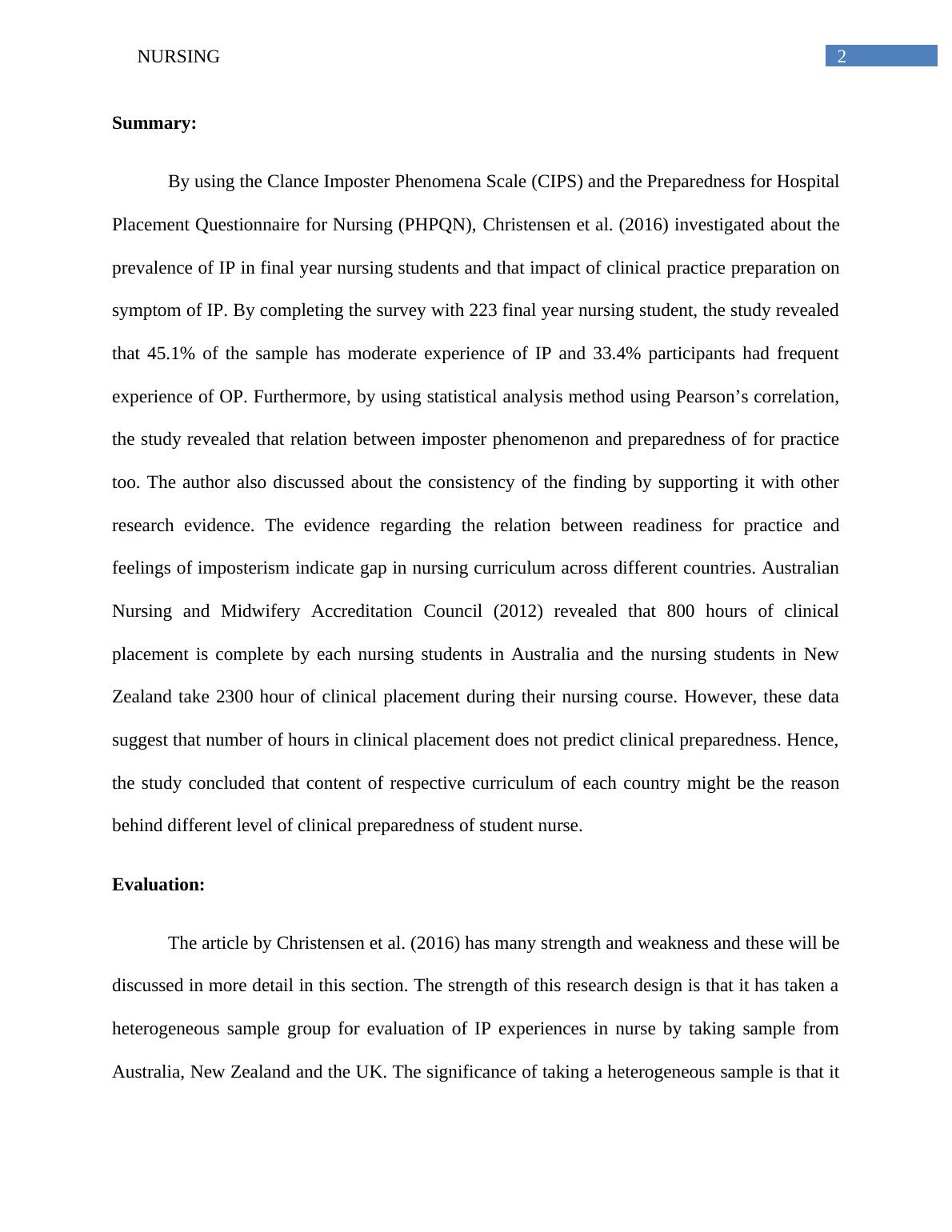Do student nurses experience Imposter Phenomenon? An international comparison of Final Year Undergraduate Nursing Students readiness for registration
Added on 2022-12-20
8 Pages1750 Words48 Views
End of preview
Want to access all the pages? Upload your documents or become a member.
Accepted Manuscript Undergraduate nursing students
|24
|7090
|30
Impact of Pre-Registration Workplace Experience Education on Nursing Practice
|12
|3156
|476
Research Foundations for Health Practice: Nurse Preparedness for Evidence-Based Practices in Australia
|7
|1578
|472
Evidence Based Practice in Nursing & Specialization Assessment 2022
|7
|1297
|30



